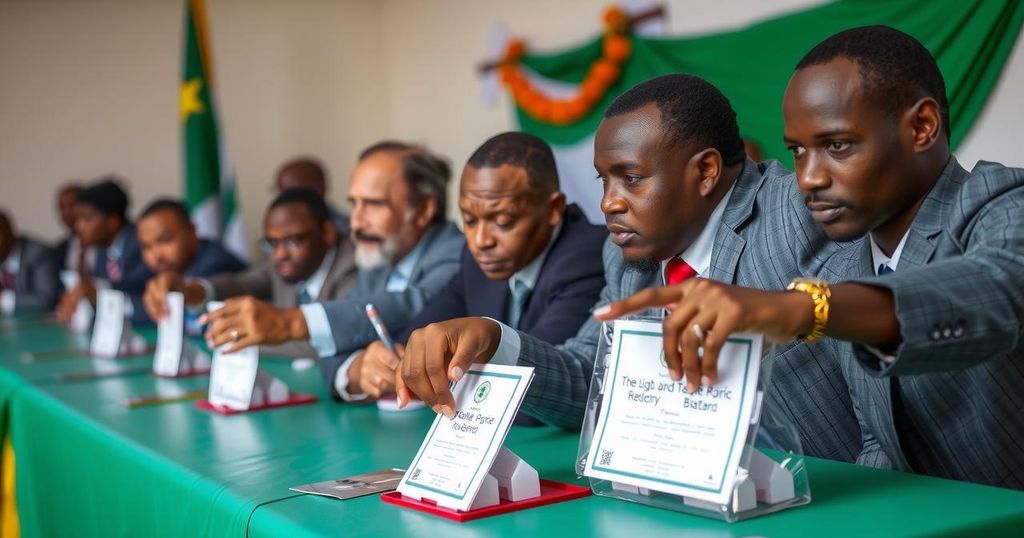Comoros Parliamentary Election: Opposition Boycotts Amid Authoritarian Concerns

Comoros held a parliamentary election, boycotted by opposition leaders accusing President Assoumani’s regime of authoritarianism and electoral integrity issues. Approximately 330,000 voters were registered, yet a low turnout was anticipated. Assoumani’s party had previously dominated the last election, amidst ongoing accusations of electoral fraud and public discontent regarding the democratic process. Voting proceeded despite threats from Cyclone Dikeledi.
Comoros recently conducted a parliamentary election, which was marred by a boycott from certain opposition leaders. These leaders accuse President Azali Assoumani and his ruling party of embracing increasingly authoritarian measures and questioning the electoral process. This election, taking place amid fears of diminished voter turnout due to public discontent with democracy, will determine the 33 legislative seats. Results are anticipated to be released by the national electoral commission next week.
Approximately 330,000 registered voters from a total population of 850,000 on the islands were eligible to participate, but opposition parties are projecting low voter engagement. In the previous parliamentary election held in 2020, Assoumani’s party, the Convention for the Renewal of the Comoros, secured 20 of the contested 24 seats. On the election day, Assoumani voted in his hometown of Mitsoudjé on Grande Comore island. Opposition factions denounced the 2020 elections as fraudulent, resulting in violent protests following Assoumani’s reelection last year amid similar allegations of electoral malpractice.
The Juwa Party, led by former President Ahmed Abdallah Sambi, was among the parties that opted not to engage in this election, having also boycotted the previous parliamentary vote. Comoros, comprising three islands situated near Madagascar, has a tumultuous political history, characterized by military coups after its independence from France in 1975. Assoumani, a former military officer, first became president in 1999 after a coup and has since navigated multiple election victories, notably changing constitutional provisions to maintain his presidency. The Africa Center for Strategic Studies has criticized Assoumani’s rule as increasingly repressive and non-competitive. Despite the threat posed by Tropical Cyclone Dikeledi, officials confirmed that the voting was conducted as scheduled.
This election reflects the deep-rooted political challenges facing Comoros, particularly concerning voter trust in electoral integrity and apprehensions about authoritarian governance.
The political landscape of Comoros has been tumultuous, significantly influenced by military coups since its independence in 1975. President Azali Assoumani, who first seized power in 1999, has since maintained consecutive terms, often altering constitutional terms to consolidate his power. The opposition’s allegations of electoral dishonesty point to broader issues of political repression and a diminishing belief in democratic processes. The recent boycott by significant opposition parties highlights these grievances, indicating a concerning trend in citizen engagement in governance, especially in the face of natural disasters such as Cyclone Dikeledi.
The recent parliamentary election in Comoros, which faced a boycott from key opposition parties, underscores escalating political tensions and concerns about electoral integrity. With accusations of authoritarianism directed at President Assoumani’s administration, the struggle for a transparent and fair democratic process continues to plague the archipelago. The outcome of this election may further influence the political climate in Comoros as it grapples with historical issues of governance and citizen participation.
Original Source: abcnews.go.com







